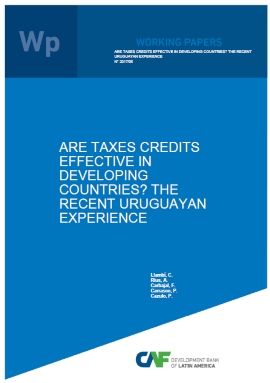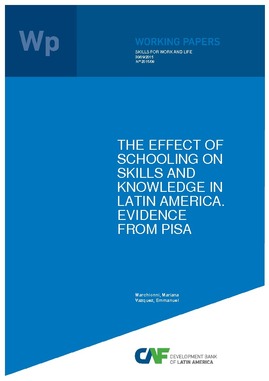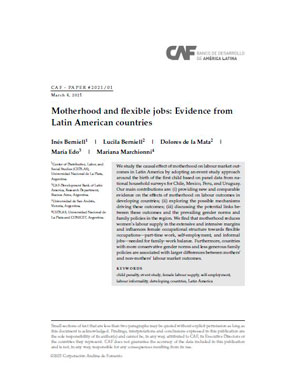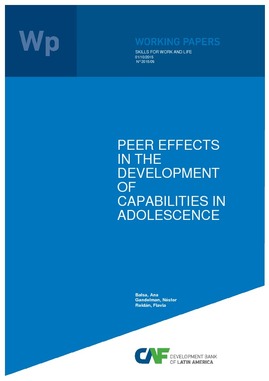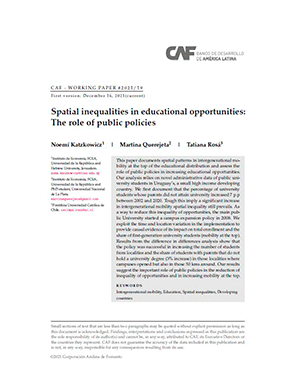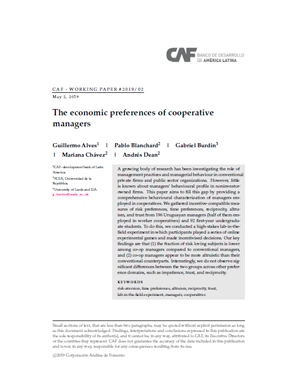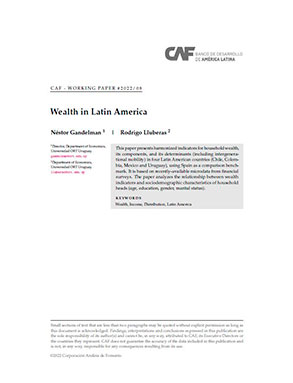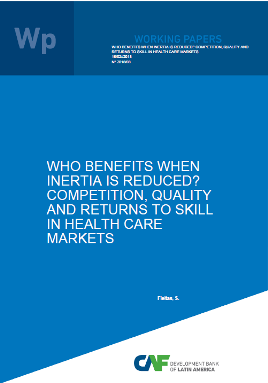Explorar por País o Región
Mostrando ítems 1-10 de 10
-
Are Taxes Credits Effective in Developing Countries? The Recent Uruguayan Experience
(CAF; Caracas, 2017-05-17)Investment promotion through tax incentives has been a key component of the growth strategies pursued in Uruguay by the last three administrations. A new regime was established, regulated by the Executive Decree 455, which ... -
The Effect of Schooling on Skills and Knowledge in Latin America. Evidence from PISA
(CAF, 2015-09-30)In this paper we estimate the causal effect of an extra year of schooling on mathematics skills and knowledge for the eight Latin American countries (Argentina, Brazil, Chile, Colombia, Costa Rica, Mexico, Peru and Uruguay) ... -
Envejecimiento y cuidados: principales características para cinco países de América Latina
(CAF; Caracas, 2022-03-08)En este trabajo analizamos las características de los adultos mayores en situación de dependencia, las estrategias de cuidados y el perfil de las personas cuidadoras, para cinco países de América Latina: Chile, Colombia, ... -
Going subnational: wage differentials across levels of government in Brazil, Mexico and Uruguay
(CAF; Caracas, 2021-12-22)Workers at subnational governments play a prominent role in the delivery of public services in most countries. Yet, information about their remuneration is scarce. Using data for Brazil, Mexico and Uruguay, we document ... -
Motherhood and flexible jobs: Evidence from Latin American countries
(CAF; Caracas, 2021-03-05)We study the causal effect of motherhood on labour market outcomes in Latin America by adopting an event study approach around the birth of the first child based on panel data from national household surveys for Chile, ... -
Peer Effects in the Development of Capabilities in Adolescence
(CAF; Caracas, 2015-09-29)We estimate peer effects in cognitive, non-cognitive and health-related outcomes in a sample of Uruguayan high-school students. Our identification strategy is based on two features of the data: (i) parents are not able to ... -
Spatial inequalities in educational opportunities: The role of public policies
(CAF; Caracas, 2021-12-17)This paper documents spatial patterns in intergenerational mobility at the top of the educational distribution and assess the role of public policies in increasing educational opportunities. Our analysis relies on novel ... -
The Economic Preferences of Cooperative Managers
(CAF; Caracas, 2019-05-02)A growing body of research has been investigating the role of management practices and managerial behaviour in conventional private firms and public sector organizations. However, little is known about managers’ behavioural ... -
Wealth in Latin America
(CAF; Caracas, 2022-05-16)This paper presents harmonized indicators for household wealth, its components, and its determinants (including intergenerational mobility) in four Latin American countries (Chile, Colombia, Mexico and Uruguay), using Spain ... -
Who benefits when inertia is reduced? Competition, quality and returns to skill in health care markets
(CAF; Caracas, 2018)Increased competition may lead to incentives for firms to increase quality by incorporating higher quality inputs. This is particularly relevant in health care markets, since the supply of high quality physicians is ...


